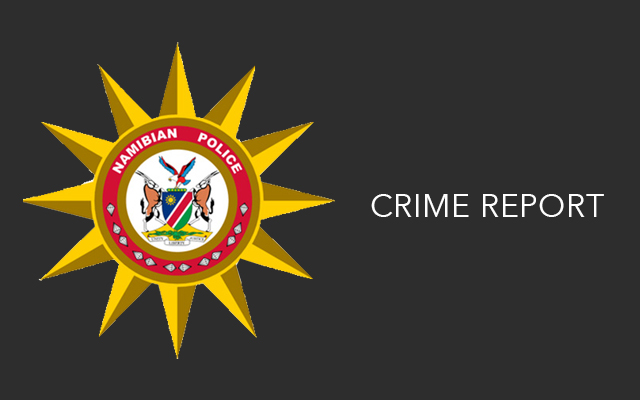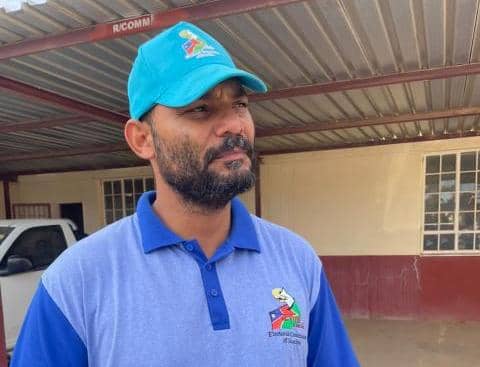PARIS – Diclofenac, a farm drug that has driven three species of South Asian vultures to the brink of extinction, could also decimate vultures in Eurasia and Africa, scientists fear.
Researchers in 2004 warned that three vulture species in India and Pakistan could be wiped out by the end of the decade because the birds absorb toxic amounts of diclofenac by scavenging the carcasses of buffaloes and goats. Diclofenac is a painkiller treatment for livestock that is sold over the counter across South Asia, and in other parts of the world too.In a study published on Wednesday in the British journal Biology Letters, British and South African scientists tested diclofenac on the Griffon vulture (Gyps fulvus), which inhabits parts of Central Asia and Southern Africa, and on the African white-backed vulture (Gyps africanus).The birds were given meat from goats and buffaloes that had been treated with diclofenac a few hours before being slaughtered.Three Griffon vultures and two African white-backed vultures were enrolled in the test, along with five somewhat luckier birds which were “controls” – they did not eat the meat but instead were force-fed sterilised water.After 24 hours, four of the diclofenac-treated birds showed lethargy and drooped their necks.By the 48-hour mark, all were dead.A post-mortem showed extensive damage by uric acid crystals, a condition called visceral gout, to their kidneys, liver and spleen.The control birds, though, were fine.The levels of toxicity shows these two species are “at least as sensitive” to diclofenac residues as the three Asian vulture species, the Oriental white-backed vulture (Gyps bengalensis), the long-billed vulture (Gyps indicus) and the slender-billed vulture (Gyps tenuirostris), the study says.The authors, led by Debbie Pain of Britain’s Royal Society for the Protection of Birds (RSPB), call for urgent research into a looming threat to species that, today, are widespread.”Diclofenac, as well as other non-steroidal anti-inflammatory drugs (NSAIDs) may pose a danger to five other Gyps vultures found in Asia, Europe and Africa,” they warn.Populations of the three South Asian species have plummeted by more than 95% since the early 1990s and are now listed as critically endangered by the World Conservation Union (IUCN).The 2004 research shed light on the causes of the population crash and warned India and Pakistan that, unless diclofenac were banned and a captive breeding programme swiftly launched, the three species may become extinct in the wild within three to five years.The dying out of the vulture would be an irreplaceable loss of a link in the food chain.In India, the birds also play a vital cultural role.Followers of the minority Parsi faith depend on vultures for disposal of their corpses, considering the burial or burning of human remains to defile the elements.- Nampa-AFPDiclofenac is a painkiller treatment for livestock that is sold over the counter across South Asia, and in other parts of the world too.In a study published on Wednesday in the British journal Biology Letters, British and South African scientists tested diclofenac on the Griffon vulture (Gyps fulvus), which inhabits parts of Central Asia and Southern Africa, and on the African white-backed vulture (Gyps africanus).The birds were given meat from goats and buffaloes that had been treated with diclofenac a few hours before being slaughtered.Three Griffon vultures and two African white-backed vultures were enrolled in the test, along with five somewhat luckier birds which were “controls” – they did not eat the meat but instead were force-fed sterilised water.After 24 hours, four of the diclofenac-treated birds showed lethargy and drooped their necks.By the 48-hour mark, all were dead.A post-mortem showed extensive damage by uric acid crystals, a condition called visceral gout, to their kidneys, liver and spleen.The control birds, though, were fine.The levels of toxicity shows these two species are “at least as sensitive” to diclofenac residues as the three Asian vulture species, the Oriental white-backed vulture (Gyps bengalensis), the long-billed vulture (Gyps indicus) and the slender-billed vulture (Gyps tenuirostris), the study says.The authors, led by Debbie Pain of Britain’s Royal Society for the Protection of Birds (RSPB), call for urgent research into a looming threat to species that, today, are widespread.”Diclofenac, as well as other non-steroidal anti-inflammatory drugs (NSAIDs) may pose a danger to five other Gyps vultures found in Asia, Europe and Africa,” they warn.Populations of the three South Asian species have plummeted by more than 95% since the early 1990s and are now listed as critically endangered by the World Conservation Union (IUCN).The 2004 research shed light on the causes of the population crash and warned India and Pakistan that, unless diclofenac were banned and a captive breeding programme swiftly launched, the three species may become extinct in the wild within three to five years.The dying out of the vulture would be an irreplaceable loss of a link in the food chain.In India, the birds also play a vital cultural role.Followers of the minority Parsi faith depend on vultures for disposal of their corpses, considering the burial or burning of human remains to defile the elements.- Nampa-AFP
Stay informed with The Namibian – your source for credible journalism. Get in-depth reporting and opinions for
only N$85 a month. Invest in journalism, invest in democracy –
Subscribe Now!










